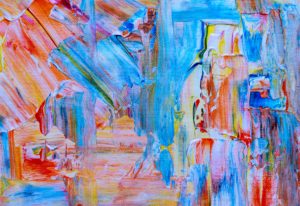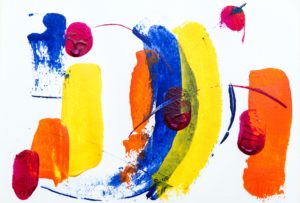Pagine
Condividi e segnala
Tag
- Althusser
- Antropologia
- Baumgarten
- Bourdieu
- Conceivability of Nothingness
- Conciliation
- corpo
- Derrida
- Dialectics
- Difference
- distinzione
- Europe
- Expression
- giudizio
- Grace
- Habitus
- Heidegger
- Hobbes
- Kant
- linguaggio
- Lyotard
- marxismo
- Medieval Aristotelianism
- Metaphysics
- Nature
- Negative
- Nichts
- nihil
- Nihilism
- nihil negativum
- nihil privativum
- Non-identical
- Nothing
- Nothingness
- onore
- politica
- postmoderno
- pratica
- riconoscimento
- Smith
- solitudine
- Sovranità
- Spinoza
- Thomas Aquinas
- Western Ontology
-
Articoli recenti
Link
Archivi categoria: NUMERO 5
Consecutio rerum 5, anno III (1/2018-2019)
Marx inattuale
a cura di Riccardo Bellofiore e Carla Maria Fabiani
Pubblicato in NUMERO 5
1 commento
Indice
Introduzione
RICCARDO BELLOFIORE, C’è vita su Marx? Il Capitale nel bicentenario
Questioni di metodo
MICHAEL HEINRICH, Rileggendo Marx: nuovi testi e nuove prospettive
TOMMASO REDOLFI RIVA, A partire dal sottotitolo del Capitale: Critica e metodo della critica dell’economia politica
FRIEDER OTTO WOLF, Systematic Theory Building and Empirico-Historical Argument in Marx’s Capital
STEFANO BREDA, La dialettica marxiana come critica immanente dell’empiria
ELENA LOUISA LANGE, The Proof is in the Pudding: on the Necessity of Presupposition in Marx’s Critical Method
BOB JESSOP, ‘Every beginning is difficult, holds in all sciences’. Marx on the Economic Cell
… Continua a leggere
Pubblicato in NUMERO 5
3 commenti
C’è vita su Marx? Il Capitale nel bicentenario
Riccardo Bellofiore
Università degli Studi di Bergamo
riccardo.bellofiore@unibg.it
Abstract: The article suggests a reconstruction of Marx’s Critique of Political Economy as a macro-monetary theory of capitalist production. The first part of what follows will provide a sort of methodological introduction to Das Kapital. I am questioning the meaning of critique versus criticism, the distinction between fetish-character and fetishism, the role of dialectics, and the difference between reading, interpretation and reconstruction. I will focus especially on Volume I. At the centre of the discussion are: the multiple meanings of abstract labour and socialization, the role … Continua a leggere
Pubblicato in Introduzione, NUMERO 5
1 commento
Rileggendo Marx: nuovi testi e nuove prospettive
Michael Heinrich*
Hochschule für Technik und Wirtschaft Berlin
Michael.Heinrich@HTW-Berlin.de
Permettetemi di iniziare con un’osservazione personale sulla mia lettura de Il capitale. Sono circa 43 anni che leggo Il capitale, e devo dire che non mi sono ancora annoiato. Leggerlo è come compiere un avventuroso viaggio intellettuale, ma per godere appieno di quest’esperienza è richiesto un tipo di impegno diverso da quello a cui ci ha ormai abituato il sistema universitario europeo, per il quale «leggere» significa solamente individuare in maniera grossolana alcune delle tesi principali esposte in un’opera.
Leggere Il capitale significa comprenderne la … Continua a leggere
Pubblicato in NUMERO 5, Questioni di metodo
2 commenti
A partire dal sottotitolo del Capitale: Critica e metodo della critica dell’economia politica
Tommaso Redolfi Riva*
redolfiriva77@yahoo.it
Abstract: The aim of the paper is to explain the concept of «critique of political economy» (CPE) in Marx’s mature work. Starting from the different meanings CPE assumes, I will try to explain the peculiarities of such a critical project. In particular, I will focus the attention on CPE as a critique of capital as objective-subjective totality: on the one side, as a system of social production whose aim is the valorisation of capital, based on the appropriation of unpaid labour and generating a system of socialisation of production increasingly … Continua a leggere
Pubblicato in NUMERO 5, Questioni di metodo
1 commento
Systematic Theory Building and Empirico-Historical Argument in Marx’s Capital
Frieder Otto Wolf
Freie Universität Berlin
fow@snafu.dex
Abstract: Marx’s conception of the ideal average provides an approach to a productive re-discussion of Marx’s epistemological practice in Capital. As a specific approach to systematic theory-building underlying Marx’s critique of political economy it opens a way, with the implied distinction between systematic theory building and empirico-historical exemplification and analysis, it makes it possible today to reconstruct Marx’s «materialist dialectics». More specifically it is claimed, that Marx’s insights into the «limits of dialectical presentation» should be interpreted in a way that makes his «dialectics» compatible with modern, post-fregean … Continua a leggere
Pubblicato in NUMERO 5, Questioni di metodo
Lascia un commento
La dialettica marxiana come critica immanente dell’empiria
Stefano Breda
Freie Universität Berlin
bredaste@gmail.com
Abstract: The paper aims to show that a materialist understanding of the method followed by Marx in his critique of political economy requires going beyond both the traditional logical-historical interpretation of dialectics and the logical-systematic interpretation developed within the Neue Marx-Lektüre.
Keywords: Marx; dialectics; materialism; Neue Marx-Lektüre; immanent critique
1. Un campo di tensione teorica
La questione della specificità del metodo dialettico seguito da Marx nella sua critica dell’economia politica rispetto a una dialettica idealista è stata al centro di accesi dibattiti … Continua a leggere
Pubblicato in NUMERO 5, Questioni di metodo
Lascia un commento
The Proof is in the Pudding: on the Necessity of Presupposition in Marx’s Critical Method
Elena Louisa Lange*
University of Zurich
elena.lange@aoi.uzh.ch
Abstract: Marx’s labour theory of value cannot be understood without the critique of the value theories of classical political economy, especially that of Adam Smith and David Ricardo. It is therefore by necessity inflicted with the presupposition of its own intellectual context. Presupposition however is not only central to the formation of the labour theory of value as «analogous to Newton’s Laws in mechanics» (Duncan Foley) in the realm of social science. Presupposition, a strong Hegelian topos, also basically informs the level of Marx’s critique as the … Continua a leggere
Pubblicato in NUMERO 5, Questioni di metodo
Lascia un commento
‘Every beginning is difficult, holds in all sciences’ Marx on the Economic Cell Form of the Capitalist Mode of Production
Bob Jessop*
Lancaster University, UK
b.jessop@lancaster.ac.uk
Abstract: Marx and Engels followed the natural sciences closely and held that there was only one science: history, embracing nature and society. This contribution notes the influence of Darwinism, thermodynamics and cell biology in Marx’s critique of political economy and examines the least-discussed of these influences: cell biology. For Marx eventually settled on the value-form of the commodity, described as the economic cell form of the capitalist mode of production (CMP), as the starting point for Capital. At stake here is Marx’s deep interest in the natural sciences … Continua a leggere
Pubblicato in NUMERO 5, Questioni di metodo
Lascia un commento
Le note del Capitale su Lucrezio e Darwin.
Vittorio Morfino
Università degli Studi di Milano Bicocca
vittorio.morfino@unimib.it
Abstract: The article takes into consideration the notes of the Capital in which Lucretius and Darwin are quoted. The author, carefully reconstructing the theoretical context in which the Latin poet and the English naturalist are mentioned, proposes an interpretation, which goes from the certain to the conjectural, of the Marxian strategy that commands these notes.
Keywords: Lucretius; Darwin; Spinoza; mechanicism; organicism
Proporrò nel breve spazio di questo articolo un’analisi del riferimento marxiano a Lucrezio e Darwin nel primo volume del Capitale. Si … Continua a leggere
Pubblicato in NUMERO 5, Questioni di metodo
Lascia un commento
Abstract Labour and Labouring
Werner Bonefeld*
University of York, UK
werner.bonefeld@york.ac.uk
Abstract: The paper argues that the critique of political economy amounts to a comprehension of economic categories from the actual, given relations of life, which is critique of economic things as perverted social forms. In this context, the comprehension of abstract labour is specific. Instead of conceiving of it as a capitalist modality of labour in general, it expounds abstract labour as purely social in character. Abstract labour is the value producing labour because it is the socially necessary labour, which is a real abstraction. The time of … Continua a leggere
Pubblicato in NUMERO 5, Rileggere il primo libro del Capitale
2 commenti
Il Capitale e il suo punto cieco: il denaro come tecnica di misura
Frank Engster*
frankengster@googlemail.com
Abstract: In the 1960s, a logical-categorial reading of Marx’s Capital began, especially with focus on the value-form analysis, from which the so-called «New Marx Reading» in Germany was one of the outcomes. These readings on the one hand found, with the necessity of synthesizing the theory of value with that of money, the key to opening up the further development of the capitalist mode of production. On the other hand, they stayed fixed on money’s second function as a medium of exchange and on money-mediated commodity exchange, remaining trapped … Continua a leggere
Pubblicato in NUMERO 5, Rileggere il primo libro del Capitale
Lascia un commento
‘La bestia è l’azienda, non il fatto che abbia un padrone’. Commento al quinto capitolo del Capitale
Massimiliano Tomba*
Università di Padova
massimiliano.tomba@unipd.it
Abstract: The first chapter of the third section of Capital, Volume 1, constitutes in many ways an Archimedean point of the entire work. In this chapter the many theoretical questions investigated in the first section are reconfigured from the perspective of the labor-process and valorization-process, acquiring a new political color. In my reconstruction, by putting the use-value at the center, I explore the diverse theoretical layers of this chapter in light of their political implication.
Keywords: value; use value; commodity; socially necessary work; corporeity; production; circulation… Continua a leggere
Pubblicato in NUMERO 5, Rileggere il primo libro del Capitale
1 commento
La giornata lavorativa
Maria Grazia Meriggi
Università degli Studi di Bergamo
mgmeriggi@fastwebnet.it
Abstract: Marx found the comparison among the slaves owner, the feudal lord and the capitalist owner, to show their voracity of time of life of the workers. The limitation of the working day is possible only with a double trial: contractual strength of the organized workers and productivity of the worked time.
Keywords: plus value; strength’s relationships; productivity
Parlerò da storica soprattutto e quindi cercando di dare conto della pertinenza delle analogie ed esemplificazioni storiche che Marx fornisce intorno al tema … Continua a leggere
Pubblicato in NUMERO 5, Rileggere il primo libro del Capitale
Lascia un commento
La scoperta del plusvalore relativo
Maria Turchetto
Università Ca’ Foscari
turco@unive.it
Abstract: We analyze the Chapter 10 of Capital’s Volume I «The Concept of Relative Surplus-value» highlighting come important concepts: 1) the industrial and mass character of production as consequences of the relative surplus-value; 2) extra-profits and dissemination of innovations; 3) the combined operation of absolute and relative surplus-value.
Keywords: Marx; Capital chapter 10; relative surplus-value; industry; mass production
«il capitalismo non produce calze per regine».
(Schumpeter 1971)
1. Tra la terza e la quarta sezione
Il cap. 10 del Libro I … Continua a leggere
Pubblicato in NUMERO 5, Rileggere il primo libro del Capitale
Lascia un commento
Dall’anima semovente al ‘soggetto automatico’. Stratificazioni filosofiche nel concetto di ‘capitale’ e nell’analisi marxiana del sistema di macchine
Luca Micaloni
Università La Sapienza
luca.micaloni@uniroma1.it
Abstract: In this paper the Author examines the philosophical implications of the Marxian analysis of the «automatic system of machinery». In the first part, he shows that the notion of «automaton» cannot be univocally assimilated to a passive and heteronomous kind of movement. In fact, it displays (both etymologically and conceptually) an affinity with the notion of «self-motion»: an «automaton» is something that finds within itself the sources and the principles of its movement. In the second part, the Author argues that Marx’s definition of «capital» as «automatic Subject» … Continua a leggere
Pubblicato in NUMERO 5, Rileggere il primo libro del Capitale
Lascia un commento
Tempo di lavoro e salario
Carla Filosa
Università popolare Antonio Gramsci
asolif@tiscali.it
Abstract: The aim of this article is to clarify the meaning of «wage» and «labour-power» concepts, according to Marxian analysis. The feature of the labour-process as human action aimed at the production of use-values is first highlighted. It is the everlasting nature-imposed condition of human existence. Indeed, the process of creating surplus value is nothing but the continuation of the boundless producing value process. Thus, the prolongation of the working-day beyonds the limits of the natural day – encroaching on all life’s time – has mainly the purpose … Continua a leggere
Pubblicato in NUMERO 5, Rileggere il primo libro del Capitale
Lascia un commento
Una storia complessa. La teoria dell’accumulazione in Marx
Roberto Fineschi
Siena School for Liberal Arts
r.fineschi@sienaschool.com
Abstract: «Accumulation» is a crucial concept in Marx’ theory of capital. Next only to the value form, this is the part that underwent the most significant changes in the different drafts of his work, since it plays a crucial role in its general structure. Its function, more than the transformation of values into prices of production, is the key point to think the continuity/discontinuity between the different abstraction levels of the theory. In this essay, we shall try to show this development and explain its more general … Continua a leggere
Pubblicato in NUMERO 5, Rileggere il primo libro del Capitale
Lascia un commento
La teoria marxiana dell’esercito industriale di riserva come teoria della politica economica
Guglielmo Forges Davanzati*
Università del Salento
guglielmo.forges@unisalento.it
Abstract: This paper deals with the relation between labour market deregulation and the path of employment in Italy, based on Marx’s theory of the industrial reserve army. It will be shown that the increase in labour flexibility negatively affected the employment rate in the 2000s. Moreover, it is argued that as unemployment increases, workers’ bargaining power decreases not only in the labour market but also in the political arena, allowing the Government to implement further policies of labour flexibility. The evidence confirms this conjecture.
Keywords: Marx; … Continua a leggere
Pubblicato in NUMERO 5, Rileggere il primo libro del Capitale
1 commento
L’accumulazione originaria: genesi del modo di produzione capitalistico tra storia e struttura
Sebastiano Taccola
Normal School of Pisa
sebastiano.taccola@sns.it
Abstract: This paper proposes a re-examination of the Marxian primitive accumulation. In the first two parts, I will sum up the Marxian exposition of the primitive accumulation as a diachronic process, which is capable to explain the historical genesis of the capitalist mode of production, especially as it took place in England (through the Enclosures Acts, the clearing of the estates, and so on). Then, I will focus on the permanence of this kind of accumulation, on the one hand (part three), as a lever that drives the … Continua a leggere
Pubblicato in NUMERO 5, Rileggere il primo libro del Capitale
Lascia un commento
Da Hegel a Marx: fenomenologia dello Stato moderno capitalistico
Carla Maria Fabiani*
carla_fab@libero.it
Abstract: In Chapter 24 of the first book of Capital, Marx deals with the modern capitalist State, emphasizing the existence of complex factors which affect it. The theoretical basis of his reflection is to be found in Hegel’s Phenomenology. He points out the violent methods that the State use against workers – the eslege proletariat – and the subsumtpion of the State to capital.
Keywords: State, capital, system, rabble, eslege proletariat, pauperism
1. Definire lo Stato: prima Hegel e poi Marx
È bene soffermarsi su … Continua a leggere
Pubblicato in NUMERO 5, Rileggere il primo libro del Capitale
1 commento
Divagazioni intorno al 25° capitolo del I Libro del Capitale
Edoarda Masi (1927 – 2011)*
Abstract: This paper deals with Marx’s theory of colonization. It is argued that – in constrast with E.G. Wakefield’s view – Marx proposed a complete a consistent approach to the role of colonization in the dynamics of capital reproduction. In particular, he emphasized the transformation of free men in “underdeveloped” economies into wage workers.
Keywords: primitive accumulation; colonization; imperialism; China
1. Una lettura
Non riassumo il capitolo 25°, che è abbastanza breve e – mi sembra – di facile lettura. Marx è interessato … Continua a leggere
Pubblicato in NUMERO 5, Rileggere il primo libro del Capitale
Lascia un commento
Money as Money: Suzanne de Brunhoff’s Marxist Monetary Theory
Rebecca Carson*
Kingston University, London
k1436908@kingston.ac.uk
Abstract: This article proposes the necessity to return to Suzanne de Brunhoff’s Marxist monetary theory in order to conceptualise the relationship between production and social reproduction within financialised capitalist social relations. De Brunhoff maintains a commitment to understanding «money as money» or money as an independent variable, with a focus on a monetary theory of credit. By representing un-valorised value, credit money cannot simply be understood as representative of reified forms of value and therefore corresponding subjection to the form cannot be interpreted from the point of view of the … Continua a leggere
Pubblicato in Letture, NUMERO 5
Lascia un commento
Some Additional Reflexions on the Viewpoint of Suzanne de Brunhoff about the Critique of Political Economy
Etienne Balibar
Université Paris-Ouest Nanterre / Kingston University, London
e.balibar@kingston.ac.uk
Bio-note: Etienne Balibar is Emeritus Professor of Political Philosophy at Université Paris-Ouest Nanterre, and currently Anniversary Chair of Modern European Philosophy at Kingston University, London. His published works include Reading Capital (1965), with Louis Althusser and others (new complete translation: Verso, 2016), and Citizen Subject. Foundations for Philosophical Anthropology, Fordham University Press, 2017.
In this postscript to Rebecca Carson’s excellent essay, with which I have only points of agreement, I will not repeat what I had the possibility to write in a previous … Continua a leggere
Pubblicato in Letture, NUMERO 5
Lascia un commento
Il mondo mistico del Capitale: scienza, critica e rivoluzione in Lucio Colletti
Gianluca Pozzoni*
Università degli Studi di Milano
gianluca.pozzoni@unimi.it
Abstract: Taking the cue from some of Lucio Colletti’s unpublished letters and writings, this article will focus on Colletti’s work from the 1967-1973 period. Here, Colletti interprets Marx’s theory of value in terms of a «real abstraction» – i.e. in terms of the alienation of individual private labours. By turning this abstraction into an object and by reifying it, capital becomes for Colletti an inherently “upside-down” social reality, whose knowledge can only be acquired through the critique and upturning of its idealism. The originality of Colletti’s Marxism … Continua a leggere
Pubblicato in Letture, NUMERO 5
Lascia un commento
The Logic of Capital. Interview with Chris Arthur
Christopher Arthur
(Formerly of the) University of Sussex
arthurcj@waitrose.com
Luca Micaloni
Sapienza Università di Roma
luca.micaloni@uniroma1.it
Bio-note: Christopher J. Arthur (1940 – ) studied at the universities of Nottingham and Oxford. For 25 years he taught Philosophy at the University of Sussex, UK. He is the author of: The New Dialectic and Marx’s Capital (2002), and of Dialectics of Labour: Marx and his Relation to Hegel (1986). He edited and introduced: The German Ideology by Marx and Engels (1970; revised 1974); Law and Marxism by E. B. Pashukanis (third imprint, 1989); Engels Today: A Centenary Appreciation… Continua a leggere
Pubblicato in Letture, NUMERO 5
Lascia un commento
Moishe Postone’s New Reading of Marx: the Critique of Political Economy as a Critical Theory of the Historically Specific Social Form of Labor
Chris O’Kane
John Jay College of Criminal Justice, CUNY
cokane@jjay.cuny.edu
Abstract: This article examines Moishe Postone’s new reading of the critique of political economy. Part One contextualizes the underlying justification of Postone’s interpretation of Marx by discussing his critique of traditional marxism and frankfurt school critical theory. Part Two exposits Postone’s interpretation of the fundamental categories of Capital in Time, Labor and Social Domination from this perspective: arguing that Postone attempts to rejuvenate Marxian critical theory by conceiving of the critique of political economy as a critique of the historically specific and contradictory dynamic of abstract … Continua a leggere
Pubblicato in Letture, NUMERO 5
2 commenti
The Adventures of Vergesellschaftung
Riccardo Bellofiore
Università degli Studi di Bergamo
riccardo.bellofiore@unibg.it
Abstract: This paper engages in a dialogue with opposite approaches whose importance is that they take seriously the issues of abstract labour and capitalist ‘socialisation’ (Vergesellschaftung). On the one side there is Michael Heinrich’s view about the Marxian ‘monetary theory of value’, stressing the nachträgliche Vergesellschaftung, whereas abstract labour exists only in monetary circulation of commodities, hence in ex post ‘socialisation’, within a non-commodity money approach. On the other side, there is Roberto Finelli, insisting that labour is already immediately fully ‘social’. This latter position is untenable … Continua a leggere
Pubblicato in Letture, NUMERO 5
Lascia un commento

 …
… 
























